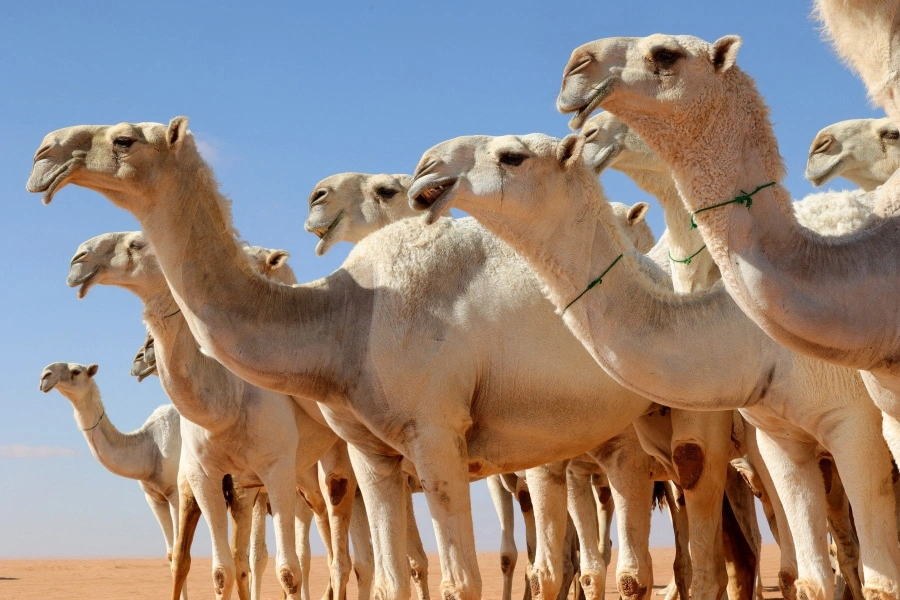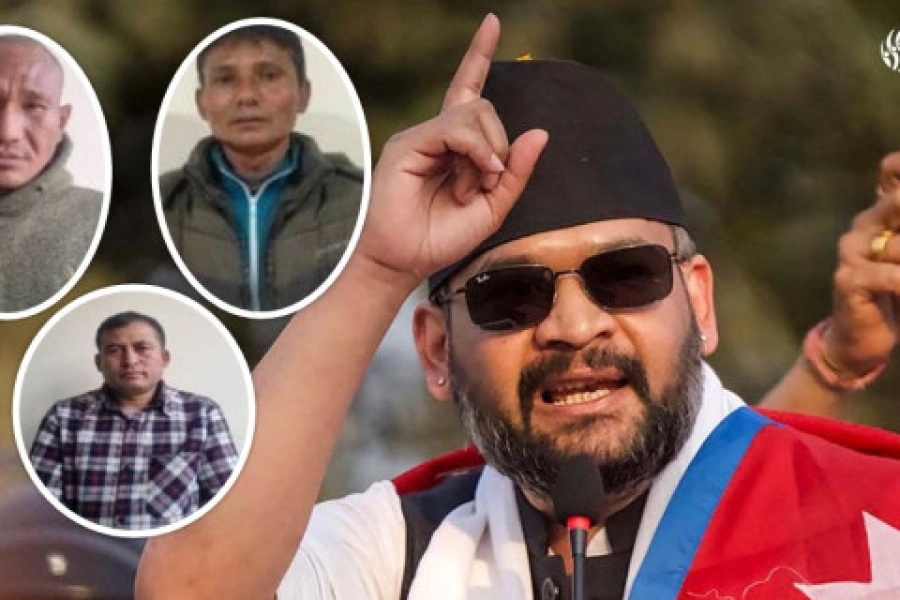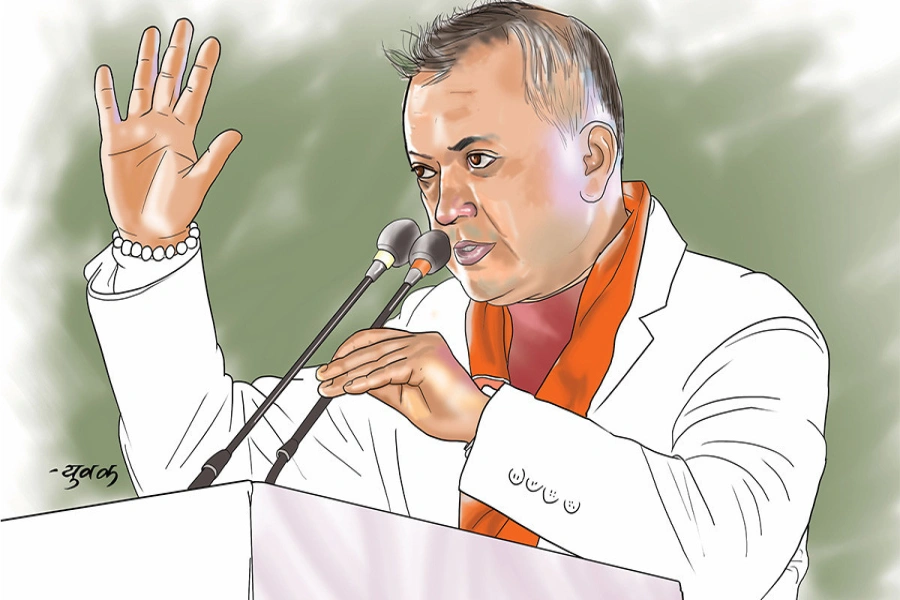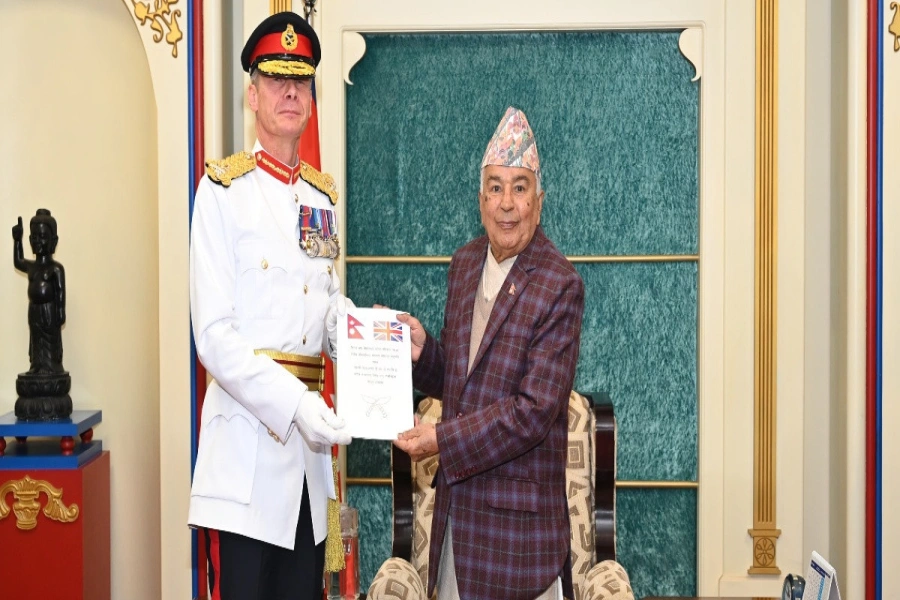Sacrifice, power & control in the Maoist party
Maoist Chairman Pushpa Kamal Dahal inherited an important feature of the personality of comrade Mao Zedong who exercised almost unbridled power over the party organization until his death in 1976. Dahal, who has reigned over the party for the last 24 years, knows Mao’s secret of success – the art of sacrifice. A close scrutiny of the history of the UCPN (Maoist) reveals how Dahal, in the fashion of Mao, exercised control of the party by creating his alter egos and sacrificing them at the altar during the times of crisis.
Interestingly, Dahal finds a shadow of his personality in an ambitious party leader and designates him as his successor whom he pampers and sets against the arch-rivals to cut them down to size. With the passage of time the successor however swells with arrogance like a balloon, creating disorder and anarchy in the party. Soon, he feels confident enough to challenge Dahal also, without realizing that his good days are now over. The Maoist chairman sacrifices him to the goddess of power and brings a semblance of order in the party. The sacrifice thaws his relations with the rivals who now applaud Dahal’s maneuver and praise him as a “true leader.”
Before the fourth plenum, it was Yan Prasad Gautam, a.k.a. Alok, an ambitious leader whom Dahal, still an obscure political figure, designated as his successor and set him against those who were perceived as leadership threats, especially Dr Baburam Bhattarai who was popular among the masses. Alok became the most powerful leader in the party after Dahal and frequently threatened to “send Babuarm to Aryahgat” (cremation ground at Pashupatinagth Temple). When he also began to challenge the authority of Dahal, the party militia arrested him on the charge of exploiting women Maoists sexually, leading luxurious lifestyles, handing over capital punishments to party colleagues, and defying the party leadership. He was sent to a labor camp in Rolpa where he met his death ignominiously. When the Nepal Army (NA) attacked the place in March 2002, he did not flee with other Maoists hoping that the army would rescue him. Witnesses say he raised both hands, and ran to the army’s side shouting at the top of his voice, “I am Yan Prasad Gautam, Alok.” But Alok was shot dead. Maoist official documents state that Alok was a blotch in the history of the party and condemn his ways as Alok tendency.
And just before the Chunwang meeting in 2005, it was Rabindra Shrestha. Empowered by Dahal, Shrestha began to attack party leaders while paying paean to Dahal. “We should dump Baburam in a ditch,” was Shrestha’s favorite statement which he repeated time and again while whipping up the party cadres. But Shrestha, who was seen as the successor to Dahal, went his own way, and fell out of grace. Shrestha ended up being a UML stalwart and then a minister. His political life has almost come to an end lately after he ditched his wife and children, and eloped with a girl who is half of his age. In the Maoist official version of history, Shrestha is a “traitor” and represents a dark side known as Rabindra tendency.
And after the peace process began, it was Matrika Yadav, who also acted as an alter ego of Dahal. But Yadav too crossed the limits and began targeting Dahal. Not surprisingly, Yadav became another martyr in Dahal’s altar. He ultimately quit the party to form his own. Maoist official documents term him a ‘traitor” and his character is dubbed Matrika tendency.
Question of leadership in a communist party
As with religious cults, leadership crises have led to fragmentation, decadence and fall of revolutionary communist parties around the world. Instead of developing a democratic system to hand over power to new generations, the communist leaders wanted disciples and groomed their successors, while exercising ruthless power to crush the rivals.
Russian communist party faced leadership crisis after the death of Lenin. His two strongmen Trotsky and Stalin staked claim to the leadership and both were involved in plots and subterfuge to ascend to power. Stalin ultimately prevailed and the latter used the state power to annihilate the real and perceived rivals in the party.
Mao too preferred to finish off the rivals to maintain hold on to the power, instead of adopting a system to pass the baton. He brought Lin Biao, the brilliant guerilla field commander, to prominence during the Cultural Revolution and set him against his rivals and his successor Liu Shaoqi. Lin worked closely with Mao, creating a cult of personality for him and was named Mao´s special successor. Lin soon became so ambitious that he planned a coup to oust Mao. Mao was to sacrifice Lin, but the latter died in a plane crash in 1971 while fleeing the country, and was officially condemned as a “traitor.” Liu Shaoqi had also fallen out of favor after Mao viewed him as a threat to his power. Shaoqi, labeled “capitalistic-roader and traitor,” died under harsh treatment in late 1969, but he was posthumously rehabilitated by Deng Xiaoping in 1980.
Sacrifice & looming crisis in the UCPN-M
Though Nepal’s Maoists have gone for multi-positional leadership system, it has not brought about any fundamental change to the old style of running the party. Dahal enjoys the monopoly over the party, taking the political moves first and endorsing them in the party later. While Dahal’s followers, citing the example of Stalin, argue that the party should adopt singular leadership with centralized power in the hands of party chief, Dahal’s rivals argue that the party leadership should be the centralized expression of the collective leadership. In fact, party leadership and party line are vital questions in a communist party. In Nepal’s Maoist party, hardliners led by Senior Vice-chairman Mohan Baidya want to seize state power in one go and establish a New Democracy, but the party moderates led by Vice-chairman Dr Baburam Bhattarai argue that the revolutionary process unfolds gradually and that ignoring the international and regional power balance might cost the party dear. The problem with Dahal is that he tried to take possession of both lines in a bid to hold on to the power, while the truth is that neither of the party lines belonged to him. He should have held on to one line and dragged the other one with him, but he chose to put his feet on two boats. The result: The party can now neither turn to the left, nor to the right, nor to the center. Hence, the fragmentation, split and crisis. Now the Maoists are so much divided that the party has been left without any general line and political programs.
As the political crisis peaks, Dahal has been caught in a dilemma: Whether he should hand over the weapons to the state, save the CA and keep Bhattarai with him or let the CA dissolve which will bring him closer to Baidya. It is difficult for Dahal to maintain his hold on the party and keep the party unity intact this time around, no matter which way he goes. In the past, he sacrificed pigeons, chickens and pigs, but the current crisis calls for a bigger sacrifice. It is yet to be seen whom Dahal prefers to sacrifice. The crisis has, in fact, so deepened that the goddess of sacrifice may call for Dahal’s own self.
Desperate search for missing girls as nearly 80 dead in Texas f...



-1770648553.webp)































